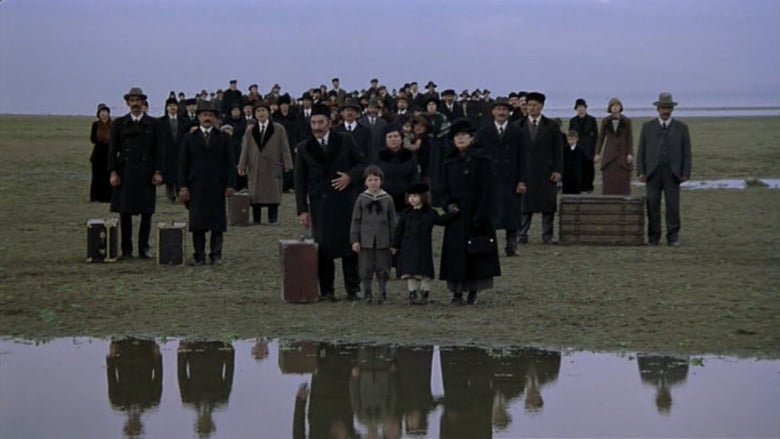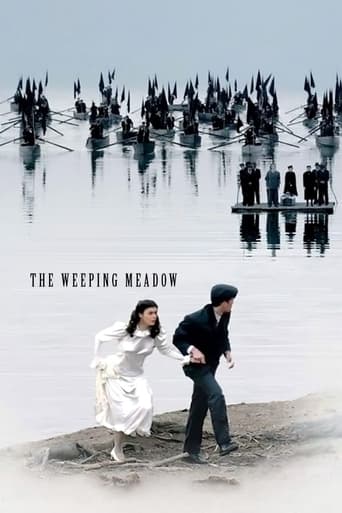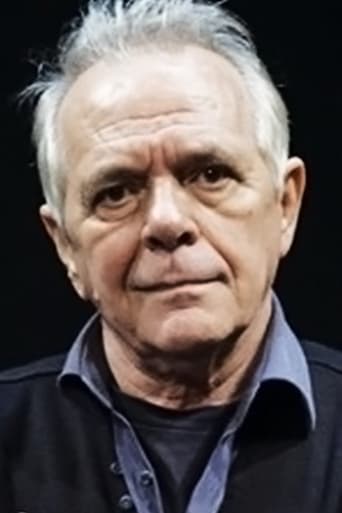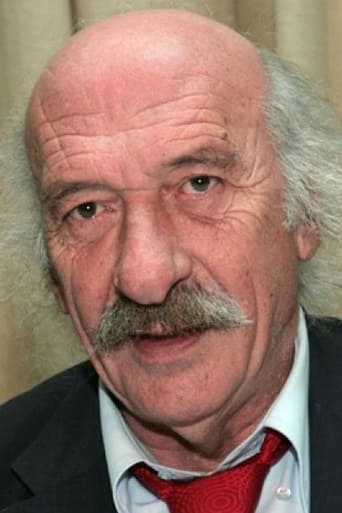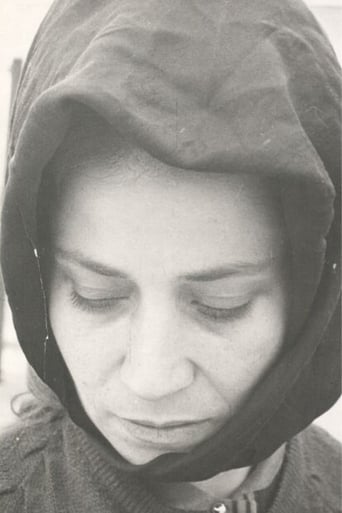The first part of an incomplete trilogy telling the story of the greek people. The film begins in 1919, with Greek immigrants from Odessa arriving near Thessaloniki. Led by the charismatic Spyros, they establish a new settlement in the delta of a river. The youngest of the settlers are Spyros' son Alexis and an orphan from Odessa, Eleni. A strong, almost incestuous affection develops between the teenagers, resulting in twins who are given to a foster family. Also standing in the way of love is Spyros, determined to take his foster daughter as his wife. The lovers then decide to flee the village, persecuted by their father, leading a life of exile. As Alexis joins a group of musicians planning to go to the United States, Eleni regains custody of the twins. Angelopoulos, as in previous films, looks at the sacrifice of civilians confronted by the workers' demonstrations of 1935, the rule of Metaxas' fascist junta and forced emigration to America, and finally the civil war of 1944-1949.
You May Also Like

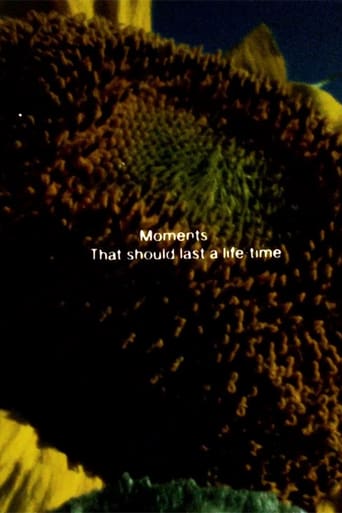
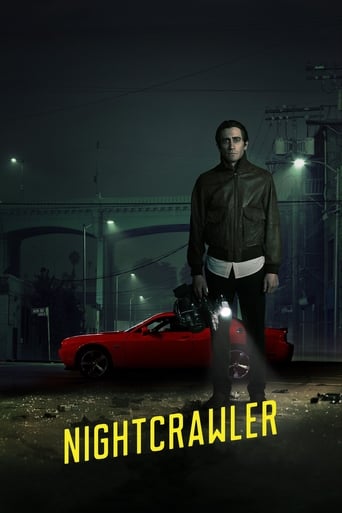






Reviews
Self-important, over-dramatic, uninspired.
hyped garbage
Ok... Let's be honest. It cannot be the best movie but is quite enjoyable. The movie has the potential to develop a great plot for future movies
Yes, absolutely, there is fun to be had, as well as many, many things to go boom, all amid an atmospheric urban jungle.
Being simple is the most difficulty action. ( Theo Anjelo Poulous) Weeping meadow is the simplest and intelligible and may be the bitterest , the most tragic, the most perfect and millions of the best adjectives among his work of art because don't see except true in it . Something like a secret or without answer happen . Also simple , not means close but full of freedom and many view in the shape of disbelief . View , not means fresh picture's and extreme long shut but views full of history and feel of heavy truth of person pain . If rely on said,s Angelo , when he want relate mother,s pains of now century and also with make a pause in front of Eleni,s name ( in Greek language it,s mean Greece) , couldn't interpret except mother,s history . ( Greece ) . Eleny,s life history is collection of pains . when she was child , her parents died and be come displaced , unwashed at teenager become mother . at young turn away of marry with old Aspiros and flight by son,s Spyros . Her husband let her ,his work caused it . She put in Jail for many years . Refuge of someone was revolutionary caused it . Her sons fight a war at two fronts and both of them died disbelief. And Finlay her husband,s letterer's read but very late . And she stay with predestination that,s unable Bitter word to explain . Eleni is self history . Anjelo take us to deep of the history with long shut and allow us to set thin king about it , with out any detour . blue color is color,s motherland Greek and faces remind blue and white Greek flag , in where like seaside chairs and explain Eleni,s predestination usual in following surface it . National and old Greeks custom consider in whole of film . Characters performance old theater of Greece like as traditional actors .Where Spyros come to amphitheater and cry Eleni,s name . Homeless persons come out from booths of theater and see old Spyros that take a step slow on sen . He play your tragic role similar to real theater . At this special moment , show next tradition in cinema tradition to pay tribute to theater . In next place and while Spyros funeral ceremony , persons show live roles them selves in front of Angelo,s cine camera similar to actors of real theater and while dancing and special ceremonies of villages of Greek . Alexis and Eleni,s introduction to musician have shape of theater . Each musician come in frame , within a special distance and with musical sound , himself introduce to them .Dance and music is other part of Greece,s culture that relate by Angelo . Spyros see the last dance him self by Eleni with his baby,s song , that able its call death dance . Perhaps in this picture's able think to Oedipus heavy shadow and homicide . Howker musicians and Nikos can be refuge for think to history , music and culture even in train plan where group with empty handed come back to city . Nicoss prostitution stage and her relation with one of soldiers in train show mythical and championship shapes Nikos come out with distressed shape from bathroom and meet Eleni look. She draw hand to her head in mythical from and said ;my hat isn't my hat? Anjelo Poulous doesn't leave his poverty-stricken character suffering from prostituting his body and sympathetically makes Nikos seek for Identity, value and grave through a symbolic trilby. As if he want say; my Honor ..isn't my Honor;and painful is only and her look to history. In this special face ,that able understand it part of history ,all go to sleep and isn't someone except Eleni. Shes a wake and watchful and seeing this much pain. Able look at the film with two opposite shape,about go village under water. If understand Eleni's flight with Alexis is guilt,their presence and come up water its mean,people of village curse then them the people and Spyros . Spyros indecent behavior with Eleni and Alexis and village assist with Spyros involve in lasting curse at the village is the same big home that stay on it where Eleni and Alexis spend with their twins at night.
I think anyone familiar with Angelopoulos knows what to expect with his films: long, drawn out, meticulously planned shots that slowly scan environments, with the image composed of not only the foreground but hundreds of yards into the background. I guess some are not impressed with the director's style, but that really astounds me. I definitely see the man as a master of his medium, and The Weeping Meadow is as good as any of his other films every one I've seen so far is a masterpiece or close to it. This film has a lot in common with the director's first big success, The Traveling Players. It follows a little girl, Eleni, from 1919 to the time of the Greek Civil War, at the end of WWII. And, as the title implies, it's a great tragedy. There is a lot of weeping. It may be long and slow, but it's always gripping. Angelopoulos' imagery is second to none in modern cinema. There are just so many jaw-dropping sequences. My favorite was the one where the camera explored its way through a maze of bed sheets drying on clotheslines, discovering various musicians hidden within. It's not a complaint, per se, but if you're going to watch the film beware of its chronological ellipses. The film can skip ahead years in just a second, when the pace usually makes each second feel like years (in a good way!). I hope New Yorker video, or some other company, digs up the Angelopoulos films that have been unavailable so far, and puts The Traveling Players on DVD, as well.
Theo Angelopoulos is one of the greatest directors working in films today. His last film, Eternity and a day proved that. This film is,likewise, a masterpiece. It begins in 1919 as a band of refugees returns to Greece from exile in Odessa. There are sepia colored photographs , and in this section of the film, the interiors are also sepia colored. The film then proceeds very elegantly for about the first third of its running time. He uses mostly long pans and tracking shots, and then may stop to focus on a scene as he gradually pulls the camera in closer, but almost never to a close up. His sense of mise en scene is superb, but even more he evokes a very specific time and place. His cinematography is superb, and often highly gorgeous. There is a superb scene at jusr about the end of the first third, where Eleni,the film's principal character, wants to leave and walks down to the water. She is suddenly surrounded by a group of men who begin to dance with her. That scene and the music in it are quite intoxicating. it reminds me a little of Fellini. The film then darkens drastically, becomes more political, and also somewhat fantastical, non linear, and rather mythic in tone. There are some beautiful, truly remarkable images here--the streets, the slaughtered sheep hanging from the trees, and a funeral procession in the water with the funeral party on a raft, surrounded by fishing boats all lite by lanterns. Then there is the final third of the film which takes us to WW2, but the style is quite abstract and elliptical, and where it is very difficult to pinpoint time. By the end her family is destroyed, and she becomes a figure of true Euripidean tragedy. It's devastating, and suddenly not only mythic but timeless.
Angelopoulos' films are definitely an acquired taste. His style eschews mainstream conventions, resulting in his films being perceived as nearly the antithesis of Hollywood's films, with which most people are familiar. So familiar, that they cannot imagine a different cinematographic approach to cinema. To Hollywood's rapid cuts and furious pacing Angelopoulos opposes through long takes, leisurely pacing, and composed tableaux. He uses long shots, which de-emphasizes individual performances, unlike Hollywood's close-ups and star system. Hollywood tries to emotionally seduce its audience, while Angelopoulos looks for means to occasionally distance his viewers from their emotional responses. Angelopoulos forces his audience to participate in his films. In the case of the acting, he presents his characters "from the outside," his intent being to compel his audience to study and explore their identities."The Weeping Meadow" is the first film of "The Trilogy," Angelopoulos' latest and most ambitious project. The story proceeds in a straight-forward, linear fashion, unusual for Angelopoulos' treatment of time, which is often somewhat convoluted, and covers from 1919 until the end of the Greek Civil War, in 1949. The central character of a film, Eleni, is interpreted by Alexandra Aidini, in her screen appearance debut. Her acting shows unusual maturity for an unseasoned actress. Alexis' role is entrusted also to a first-time actor, Nikos Poursanidis, whose performance is convincing. Giorgos Armenis, as Nikos, is most touching in his portraying of a stoic character, full of humanity and compassion. Atypical for Angelopoulos, there are some expository dialogues in the earliest scenes, but they appear a little gauche. However, in keeping with his unique style, dialogues are sparse, without any monologues or exchanges during which his characters exteriorize their inner conflicts, doubts, or feelings. The action, as in the classic Greek theater, takes place offstage and is described not by the chorus, but by some of the different characters functioning, in turn, as the chorus.Angelopoulos' productions are always filmed on location in remote areas, using the available decor, with minimal construction. But this film required the massive constructions of a whole city neighborhood of some two hundred, 1920-style stone houses, in the Thessaloniki's harbor section, which will eventually be burnt down, and of a whole village at the edge of Lake Kerkini, some distance north of the city, which will be submerged for the purpose of the plot when the lake rises up naturally about two meters.Andreas Sinanos, Giorgos Arvanitis' assistant from 1975 until 1983, was the cinematographer. The whole film is shot under covered skies, threatening or rainy weather, and misty Greek landscapes in dark colors of grays, blues, and greens. Red appears briefly on three occasions. The colors, the characters and their costumes, the usual decors of the familial tales are all represented in tableaux and plans-sequences of an Angelopoulos who has totally reverted to the aesthetics of his first films. Angelopoulos' films contain many image references and lines of dialogues from his previous films, and this film is no exception, which makes it a delight for Angelopoulos' aficionados.The story is based on a short story by Italian screenwriter, old friend and close collaborator, Tonino Guerra, with the participation of Petros Markaris, and Giorgio Silvagni. The music is by Angelopoulos' long time collaborator, Eleni Karaindrou. Her music is not a background accompaniment, but a dramatic element, a living component of the story, an actor adding some words that had not been spoken.In "The Trilogy," Angelopoulos plans to recall his country's history, from the early years of the last century to the present, as seen through the eyes of a woman, Eleni, as she lives her life. Her story has, as principal theme, the exile of the Greek people, and the displacement of the people in general, at the whim of History. Angelopoulos tackles his themes as he would in a Greek tragedy, and as in all Greek tragedies, a single primordial mistake leads to an unstoppable chain of events, one that crushes inexorably the main character.In the present film, History is relegated to the background over which Eleni's story is told. Eleni, whose very name evokes Greece, becomes a metaphor for the Greek nation and its people. She is the Greek mythological mother who laments the sacrifices of her fathers, brothers, and sons. But she is also the modern heroine, as women everywhere throughout the ages, who bend and stagger under the weight of adversity. Furthermore, Angelopoulos' treatment of History in "The Weeping Meadow" is certainly different from that in "The Travelling Players." In the latter film, Angelopoulos' views contradict the "official" Greek history and constitute a fundamental revision of history in which the Left, in general, and the Communist Party of Greece in particular, are given their proper places, and are not depicted as the moral threat to Greek democracy. In "The Weeping Meadow," History is simply there, absolute, and not open to interpretations.Since we became familiar with the cinema of Angelopoulos, we know his fascination with the Greek myths, that they are eternal, and that History repeats itself. In this particular film, there are references to the Theban cycle of the Lavdakides family -- "Oedipus," "The Seven against Thebes," and "Antigone." There is also a reference to Homer's Penelope in the departure scene to America, where Alexis unwinds Eleni's unfinished knitted sweater. Or is it Ariadne's thread, which allowed Theseus's exit from the labyrinth? But in the present film, the thread broke and Alexis-Theseus never came back. All these allusions to Sophocles, Aeschylus, and Homer are only here because they make the poet Angelopoulos dream.Angelopoulos' work is an uncompromising devotion to cinema as poetry. His films are elegant, powerful, and eloquent. They are also long and demanding on the part of the spectator, but always well worth the effort. Angelopoulos' films have something of melancholic, but they are not pessimistic. The melancholy that one feels is the dignity of the heart confronted with the defeat of a vision.
Top Streaming Movies











